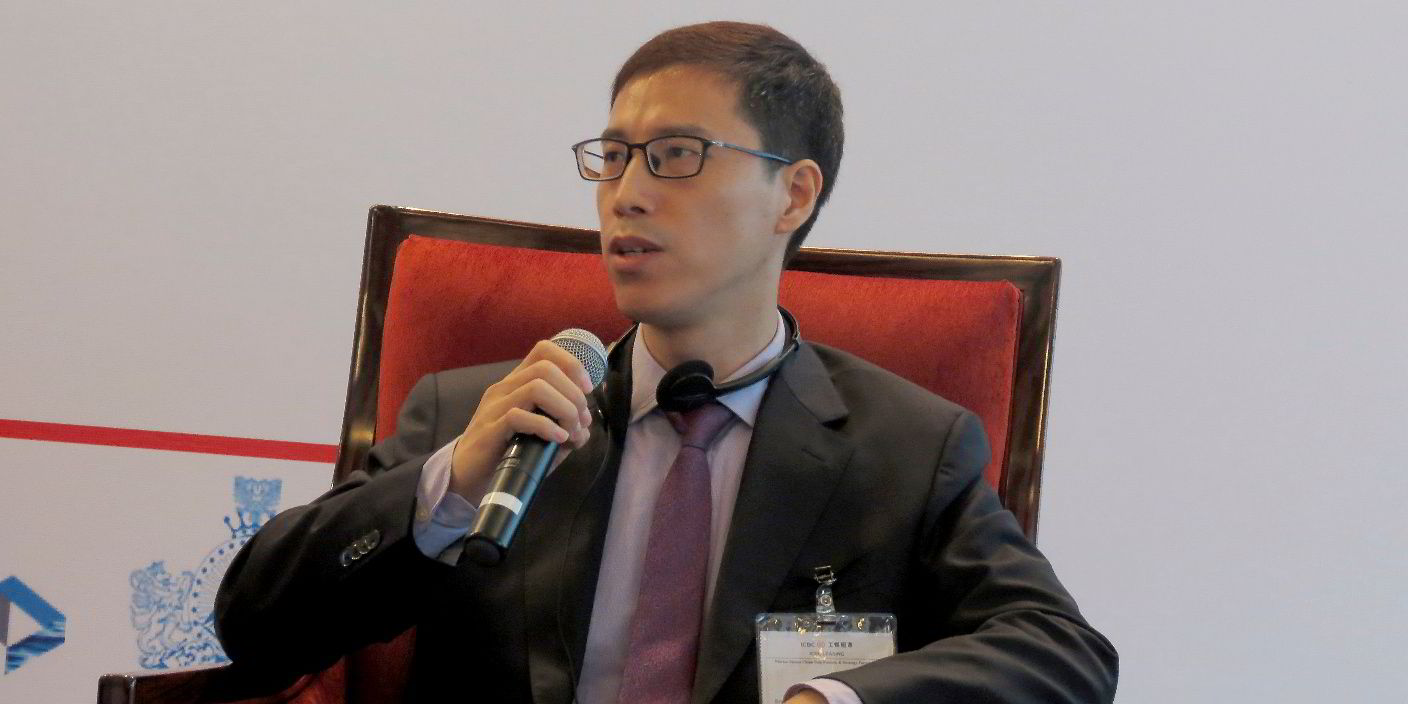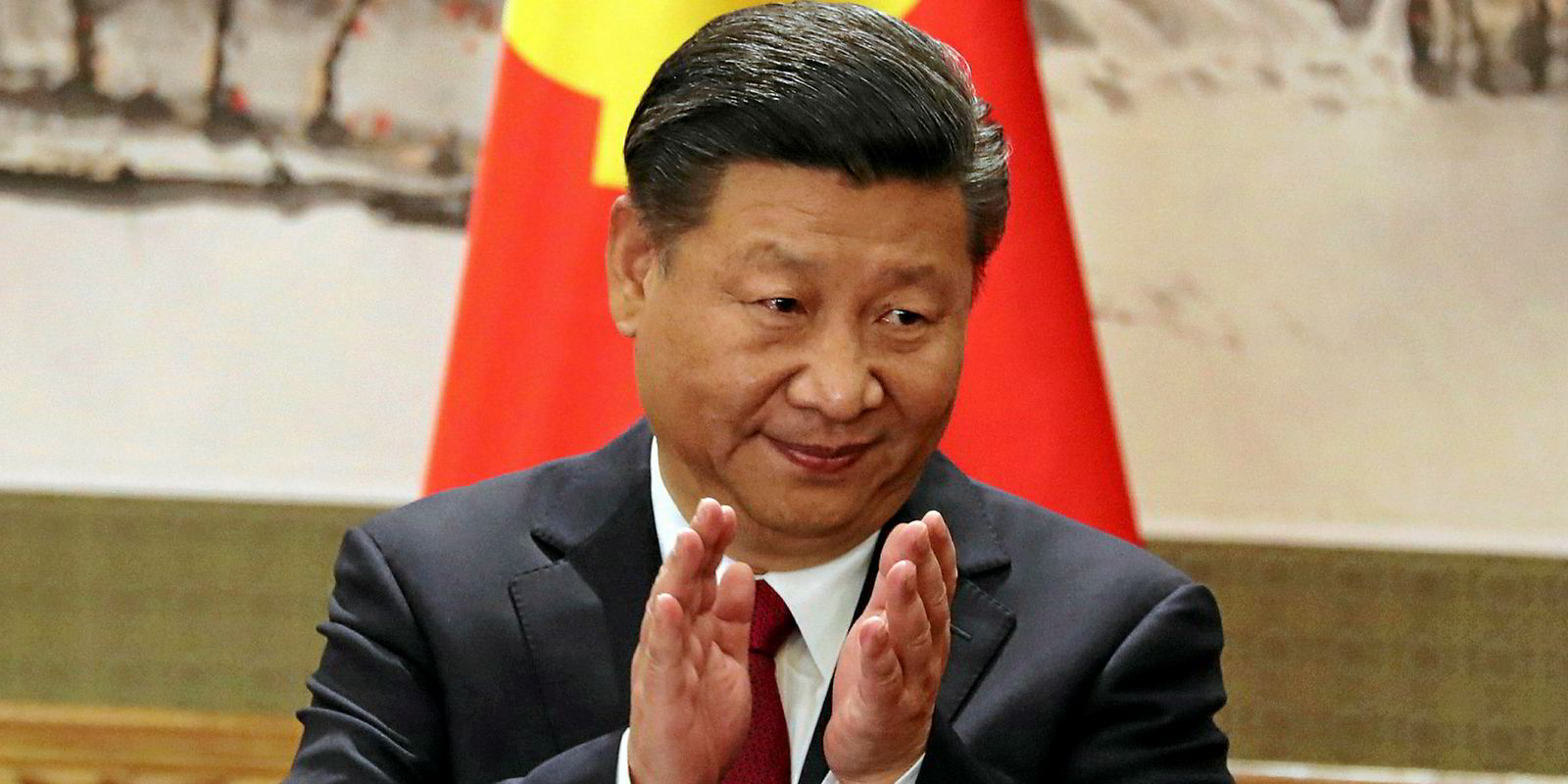Chinese asphalt tanker owner Xin Yuan Ocean Shipping has given the go-ahead for its initial public offering, and is seeking net proceeds of between $14.3m and $20.2m to expand its fleet.
The Fuzhou-based private shipowner plans to use the bulk of the money to order two 21,000-dwt asphalt tanker newbuildings.
The company, whose name is sometimes transliterated into Shun Yuen, is offering 25% of shares to the public on the Hong Kong Stock Exchange, under the name of holding company Xin Yuan Enterprises Group. However, the lion's share of that is set to go to a pre-subscribed cornerstone investor, Xiamen-based Huate Holdings, which is also a key customer.
Xin Yuan has agreed to charter one of its planned new asphalt carriers to Huate.
The IPO is meant to price next Tuesday, 18 September.
Rapidly diversifying
Currently, the company owns nine asphalt carriers, all ordered as newbuildings, with Cosco as its biggest customer, but it has a rapidly diversifying business base, including time charter, contract of affreightment (COA) and spot business.
Xin Yuan chief financial officer Andy Lin (Lin Shifeng) could not immediately be reached for comment.
TradeWinds first reported on the planned IPO in November 2016.
The company is 91% controlled through intermediate entities by its three founders, chairman Ding Xiaoli, chief executive Xu Wenjun and executive director Ding Yuzhao.
The remaining 9% is held by a major customer, Bilsea International, which is controlled by Liu Weipeng and husband Yan Xiankai.

Shipping databases list part of the fleet as controlled by Xin Yuan and part by the affiliated Bilxin Shipping. But after the IPO, all nine ships in the water will be in the Xin Yuan fleet.
The company began eight years ago as a pure time charter owner for a single customer, Cosco. In 2015, 100% of the business was still from Cosco time charters, but by 2017, Cosco accounted for only 29.7% of revenue and 33.4% of gross profits.
Xin Yuan made gross profits of $4.4m on revenues of $10.8m in 2015. The following year, the figures were $6.4m on $15.5m. By 2017, when time charter revenue from all sources had doubled but COA and voyage charter business had also become important, gross profits had swollen to $13.3m on $33.7m revenue.
Bottom line
But administrative, foreign exchange and finance costs increased greatly in 2017, so the company's bottom-line profit during the three years went from $3.7m to $4.5m to only $6m.
Other customers now include US-based Sargeant Marine, trader Vitol, new investor Huate and related party Seabridge.
Xin Yuan had its origins in 2010 when private enterprise was needed to fill a gap caused by government economic policy. Xu Wenjun learned from Cosco officials that customers were demanding more asphalt carrier tonnage, but as a central state-owned enterprise (SOE), Cosco was not in a position to order ships.

Chinese manufacturing industries, including shipbuilding, were glutted with excess capacity thanks to economic stimulus policies, yet SOEs, including Cosco, were not in a position to order vessels as needed.
At the time, Chinese manufacturing industries, including shipbuilding, were glutted with excess capacity thanks to economic stimulus policies, yet SOEs, including Cosco, were not in a position to order vessels as needed.
"The state-owned enterprises in the PRC [People's Republic of China] were not encouraged to invest in major production equipment and they were required to obtain approval when intended to do so," Xin Yuan said in its IPO prospectus.
Demand unsatisfied
Meanwhile, the global shipping industry was burdened with excessive tonnage, and many owners were avoiding ordering newbuildings, so customer demand went unsatisfied.
On that basis, Xu recruited his partners, Ding Xiaoli and Ding Yuzhao (no relation), from outside the shipping industry and their start-up ordered its first two 12,000-dwt vessels for 10-year charters to Cosco Southern Asphalt. The San Du Ao (built 2011) was built at Fuzhou's People’s Liberation Army No 4807 Shipyard at a cost of $24.3m, followed by the Zhuang Yuan Ao (built 2012) at Cosco Dalian for $26m.
The company's more recent newbuildings are in the 8,000-dwt range.
Xin Yuan considers China's global Belt and Road Initiative (BRI) infrastructure programme important as a source of future business, but recently closed the door on a proposal to collaborate with Huate and an unnamed Chinese property developer to build a series of BRI-related asphalt processing, storage and logistics facilities in Africa and Australia.






